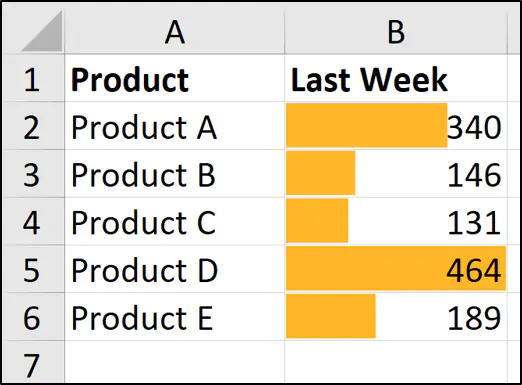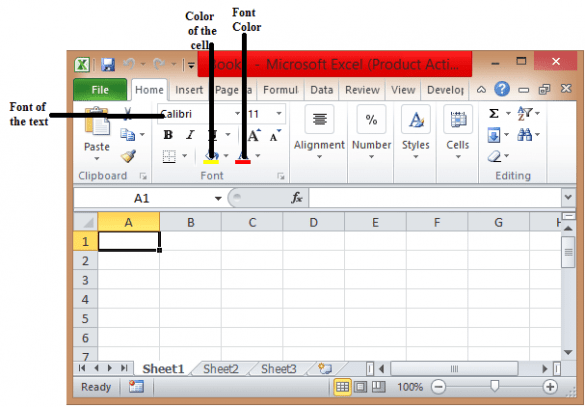5 Easy Steps to Create Master Excel Sheet with Subsheets

Excel has long been an indispensable tool for managing data, whether for financial analysts, project managers, or anyone in need of organizing large quantities of information. One of its most powerful features is the ability to create a Master Excel Sheet linked to Subsheets, which can streamline data management and enhance your workflow. Here are five easy steps to set up this system in Microsoft Excel:
Step 1: Setting Up the Structure

First, ensure that your Excel workbook contains the sheets you’ll be working with:
- Master Sheet: This will be your central hub where summary data or key information from subsheets is compiled.
- Subsheets: These are individual sheets where you’ll have your detailed data, which will be linked back to the master sheet.
Creating the Master Sheet

Open a new workbook or use an existing one, and right-click the sheet tab:
- Choose “Insert” > “Worksheet” or click the ‘+’ icon at the bottom.
- Name this new sheet as “Master”.

Adding Subsheets

Add as many subsheets as you need:
- Right-click a tab, choose “Insert”, and name them accordingly (e.g., January, February, March).
Step 2: Preparing the Master Sheet

The master sheet is where you’ll compile the data from your subsheets:
- Define Your Columns: Decide what kind of data you want to summarize. Common examples include totals, averages, or specific metrics.
- Label Your Rows: Each row could represent a different category or time period, depending on your data structure.
- Use Named Ranges: Name cells or ranges that you’ll be referencing often for easier formula use later.
Step 3: Creating the Linkages

Link the subsheets to the master sheet:
Basic Data Linkage

Use formulas to reference data from your subsheets:
- For instance, if you want to link the value in cell A1 of January to your master sheet, type
=January!A1in the corresponding cell on the master sheet.
Advanced Techniques

For more complex data manipulation, consider:
- Using Index and Match: This allows you to reference data dynamically based on criteria you define.
- Consolidate Function: This feature can automatically link and summarize data from multiple sheets into the master.
📌 Note: Excel's dynamic array formulas (starting from Excel 2019 or Office 365) can provide even more versatile linking capabilities, but be mindful of compatibility if sharing files.
Step 4: Data Validation and Formulas

Ensure data integrity and make your master sheet interactive:
Data Validation

- Set up dropdown lists using data validation to ensure consistency in data entry.
Dynamic Formulas

- Use functions like
SUMIF(),VLOOKUP(), orINDEX() + MATCH()to calculate totals or match criteria across your sheets.
| Function | Usage |
|---|---|
| SUMIF | Sum values based on a single criterion. |
| VLOOKUP | Look up and return a value in a different column based on a lookup value. |
| INDEX + MATCH | A more flexible and powerful lookup function than VLOOKUP. |

Step 5: Automating Reports and Visualizations

Utilize Excel’s data visualization features to automate your reporting:
Create Dashboards

- Use pivot tables to summarize data from subsheets automatically.
- Link charts and graphs to the master sheet data for dynamic updates.
Macros and VBA

For repetitive tasks:
- Record macros or write VBA scripts to automate report generation or data consolidation.
Here's where implementing these steps will truly pay off:
- Efficiency: You’ll spend less time manually compiling data, and more time analyzing it.
- Accuracy: Automating data updates minimizes errors from manual entry.
- Insight: With dynamic dashboards, you gain immediate insights into your data trends.
📌 Note: Excel's capabilities continue to expand with each new version, keeping your setup relevant by updating your software when possible.
The process of creating a master Excel sheet with subsheets might seem intricate at first, but it sets the foundation for a robust, efficient data management system. By following these steps, you can harness the full potential of Excel to manage complex datasets, automate reporting, and uncover valuable insights from your data. The key to mastery lies in setting up a well-structured system that can evolve as your needs change, ensuring your data management grows with your organization or personal projects.
Can you link data from multiple workbooks?

+
Yes, you can link data from multiple Excel workbooks using external references. This is done by specifying the full path to the workbook in your formula, like =‘[Filename.xlsx]SheetName’!A1.
What if my subsheets change in structure?

+
Use named ranges to reference specific data points, which makes your links more robust. If the structure changes significantly, you might need to update the formulas in your master sheet to reflect these changes.
Can I refresh data automatically in my master sheet?
+You can set up your master sheet to refresh automatically when the workbook is opened or manually by refreshing linked data or running a macro that updates the sheet.
Is there a way to protect data in the master sheet?
+Yes, you can protect sheets in Excel with a password or user permissions. Use the ‘Protect Sheet’ feature to prevent accidental changes or ensure data integrity.
What happens if a subsheet is deleted?
+Excel will return a #REF! error if the referenced sheet or cell is no longer available. To mitigate this, keep a backup of your data and ensure clear communication within your team if changes are to be made.



